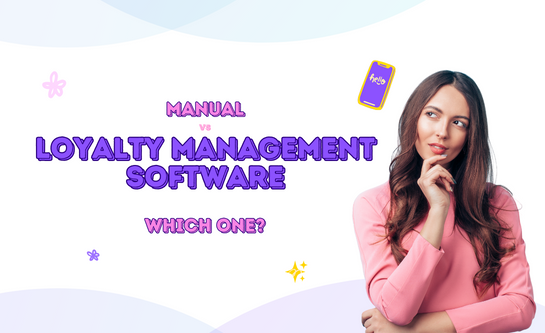Do Rewards Programs Really Create Loyalty?
 Nov 24th, 2023
Nov 24th, 2023
 409 views
3 MINS READ
409 views
3 MINS READ
In today’s fiercely competitive business landscape, companies are constantly searching for ways to retain their customers and foster brand loyalty. One strategy that has gained immense popularity is the use of rewards programs. From airlines and hotels to coffee shops and grocery stores, it seems like every business now offers some form of a rewards system. But do these rewards programs genuinely create loyalty, or are they simply a short-term tactic to attract and retain customers? In this article, we will explore the effectiveness of rewards programs in building lasting customer loyalty.

The Psychology of Rewards Programs
To understand the impact of rewards on customer loyalty, it’s crucial to delve into the psychology behind it. Rewards trigger a sense of gratification and accomplishment, releasing dopamine in our brains, the feel-good neurotransmitter. When customers receive rewards, they experience a positive emotional response, which can create a temporary sense of loyalty to the brand offering the rewards.
However, this initial enthusiasm can fade if not properly nurtured. Customers may take advantage of rewards without forming a deeper connection with the brand. So, while rewards can create short-term satisfaction and repeat purchases, the question remains: can they truly foster lasting loyalty?
The Loyalty Illusion
One of the major criticisms of rewards programs is that they often create what is referred to as “transactional loyalty.” This type of loyalty is based primarily on the exchange of goods or services for rewards and is often short-lived. Customers may continue to make purchases solely to accumulate more rewards, but once a better offer comes along, they may readily switch brands. This highlights the precarious nature of loyalty built solely on rewards.

Moreover, in a crowded marketplace where many businesses offer similar rewards, customers may find it easy to switch allegiances if they spot a better deal elsewhere. This raises the question: are these customers truly loyal to the brand, or are they simply loyal to the rewards themselves?
Moving Beyond Rewards Programs
To create genuine, long-lasting customer loyalty, businesses need to go beyond the allure of rewards programs. While rewards can be an effective tool to attract and retain customers, they should be seen as just one component of a more comprehensive loyalty strategy.
- Exceptional Customer Experience: Providing an exceptional customer experience is key to building true loyalty. When customers feel valued, heard, and appreciated, they are more likely to form an emotional connection with the brand. This connection can withstand the allure of a competitor’s rewards program.
- Consistent Quality: Consistency in product or service quality is another critical factor. Customers want to know that they can rely on a brand to consistently meet their expectations. No amount of rewards can compensate for poor quality or unreliable service.
- Personalization: Tailoring the customer experience to individual preferences can be a game-changer. Personalization goes beyond generic rewards and demonstrates that a brand understands its customers’ unique needs and desires.
- Engagement and Communication: Regular engagement and meaningful communication with customers can deepen their loyalty. By providing valuable content, updates, and opportunities for feedback, businesses can foster a sense of community and connection.

Conclusion
While rewards programs can be effective in generating short-term customer satisfaction and repeat purchases, they do not guarantee long-term loyalty. True loyalty is built on a foundation of exceptional customer experiences, consistent quality, personalization, and meaningful engagement. Rewards programs can be a valuable component of a broader loyalty strategy, but they should not be relied upon as the sole means of retaining customers. To create enduring loyalty, businesses must focus on building genuine, emotional connections with their customers that extend beyond the allure of rewards.
 Back to blog page
Back to blog page






























